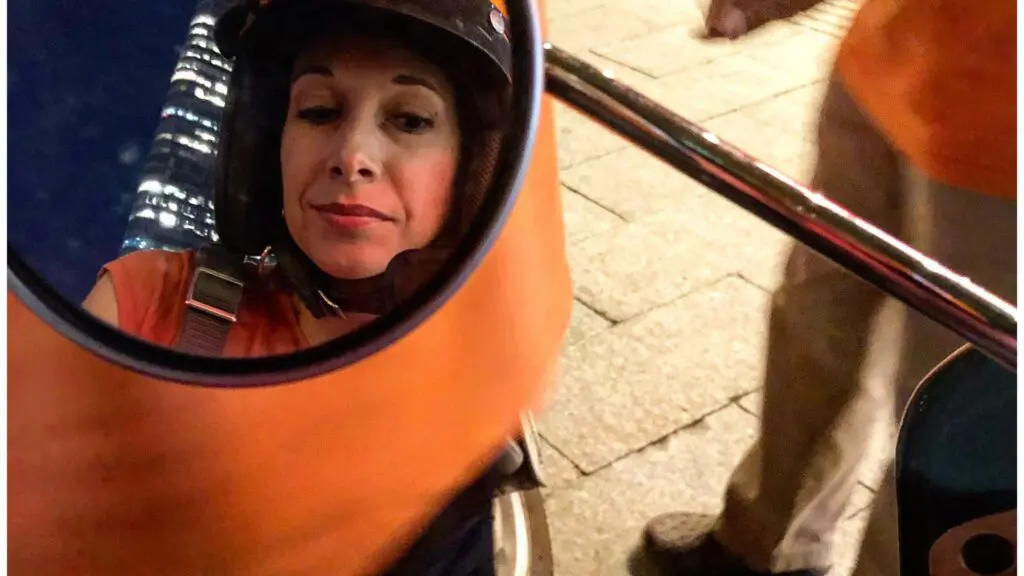I recently ran into a friend who’s training to be a futurist. Naturally, I had a ton of questions, both about the future and about what a futurist actually does. She explained to me that part of the job was to spin out threads of possibilities into different outcomes and then trace those threads back to identify things along the way that would indicate we’re on that path.
Fast forward to last Sunday morning when I woke up to discover that a website based in Bulgaria has been using artificial intelligence to duplicate (essentially plagiarize and remix) the helpful articles our team of real parents and travelers have worked long and hard to produce for you here on FamilyVacationist. Due to Google’s pronounced new shift to make room for this kind of AI-generated content in its search results, this fraudulent website (there really is no other way to characterize it) is already appearing in search results alongside the original articles it has copied.
This is bad for us, yes. But more importantly, I think it’s really bad for human beings in general, especially those who come to the internet for tips and recommendations based on the lived experiences and expertise of actual travelers.
We’re not just journalists who’ve spent more than two decades traveling, researching, and going deep on travel in order to share expertise and inspiration with other human travelers. We’re also people who look to the internet for trustworthy advice on dozens of daily topics. And we view the AI-generated copycat content as a concrete example that we—meaning the whole human race—are at the beginning of a shift away from human advice toward a computer-generated rehashing of existing information. It not only undermines our trust in the internet but also, in a very real way, kills the possibility of new original content.
Plenty of large companies, including search engines like Google, have futurists on staff. I wonder what they envision as they follow the threads down this particular path. Because here’s the thing: AI can do some of the work of travel planning, for instance to find existing information and pull together a serviceable itinerary. But it can’t decide what what to do when its kid won’t go to the resort kids club, reflect on the bittersweet experience of traveling as an adult with your aging parents, or make the very real decision about whether to pull your kids out of school to travel. And it certainly can’t stay in a hotel, feel the sheets and look out the window, and give you advice about what it’s really like to stay somewhere.
If AI-generated content mines the human experience and then drives the humans experiencing the real world out of business (which it is very much being positioned to do), then search results—about travel and everything else—become nothing more than a snapshot of the past.
Family vacations are no small investment. It takes time and money to go on vacation, and if you’re going to get inspiration from the internet about where to go, where to stay, and what to do when you’re there, we think those tips and recommendations should come from real people with real-world experiences with the capacity to frame the conversation in human terms as only fellow parents and travelers can.
That’s why with every article we publish, you’ll never have to wonder if a robot has written the words you’re reading. We’re parents and travel experts who use our real-world, real-person travel expertise to help you make great decisions about travel, and that is never going to change. We’ll keep on traveling, writing, sharing our advice with you, and working with other real travel experts to bring you the best vacation ideas for your family. We hope you’ll stick with us on the adventure.
FamilyVacationist was founded by Christine Sarkis and Josh Roberts, two longtime award-winning travel journalists and parents. Unlike websites that rely on artificial intelligence, our team of on-the-go parents and family travel experts have actually visited the resorts, theme parks, and other family vacation spots we recommend. And we’re going to keep on doing it that way because when it comes to travel, we believe that real human experiences and recommendations actually matter.



